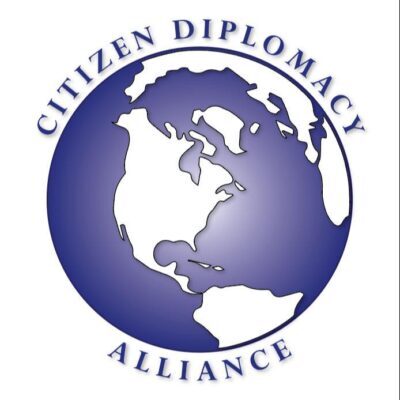A Portuguese colony until 1975, Angola’s path since independence has been marked by on-going civil war, government corruption, a countryside full of hidden land mines, disease, and huge debt to China and other power countries until 2017, when President João Lorenzo was elected. According to U.S. Ambassador Nina Maria Fite, the new President has begun to rebuild the economy, education and health systems, and to restore trust in government while ending the former regime’s isolationist policies. As the second largest oil producer in Africa, Angola is member of OPEC, and the current lead for the African Union. With deposits of copper, diamonds, and other minerals, and a strong commitment to international collaboration for problem solving, Angola is in a position to become a stronger participant in global politics.
An eloquent and articulate speaker, Ambassador Fite, painted a picture of the devastation and corruption during the civil war years, and then presented a strong picture of hope for peace, prosperity, and health under the strong leadership of President Lorenzo. “He is really terrific for U.S.-Anglo relations,†she said, and he has shown “he is pro-West, turning away from Russia and China,†and working closely with the U.S. to rebuild.
After the civil war years (funded by the rich oil and diamond deposits), China came to Angola’s aid with massive support to rebuild the infrastructure. That support was in the form of loans to be repaid with oil allotments. After corrupt officials took their “shares†of the reconstruction funds, little was left for the intended purposes. The construction materials used have not survived well, and Angola has left with over $2.5 billion in debt to China and with an infrastructure that is still failing. During the pandemic, as oil prices fell, repaying the debt in oil or in currency became even more difficult and the IMF has stepped in. Angola has enjoyed “food self-sufficiency†strong agriculture and fishing resources. However plans to expand those for export have been delayed until all remaining land mines have been removed from fields.
The United States has been helpful in locating and removing the landmines from the countryside and has been collaborating with President Lorenzo to improve education, healthcare, wildlife protection and the ecology with teaching and training, economic development, trade agreements, and so much more. Recently, Houston Community College has opened a mini campus in Angola to support the oil industry refineries.
Ambassador Fite ended by mentioning that her tour in Angola is almost completed, and she would try to spend as much time as possible visiting as much of Angola as possible. She does not yet know where her next post would be, but after 17 straight years of living abroad, she would love at least a short term in Washington, D.C.
Ambassador Nina Maria Fite, thank you so much for such an insightful and articulate vision of our deepening relationship with Angola, its current issues, and its complex history as a Portuguese colony with a heritage of the Portuguese language and cultures, of years of civil war, and now a brighter future.
